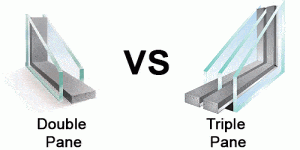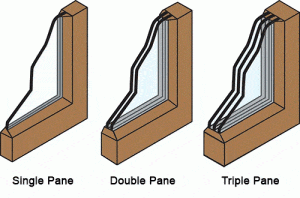Have you ever heard of price conditioning? Chances are, you’ve experienced it—probably several times just this week—without even realizing it. Price conditioning is one of the oldest and most effective sales tactics used by home improvement companies, including many window replacement companies.
Understanding how it works can help you spot pricing games before they cost you thousands of dollars on your new windows.
What Is Price Conditioning?
Price conditioning happens when a salesperson or company shows you an inflated or unrealistic price first—so that when they later reveal their “discounted” or “special” price, it seems like a great deal.
It’s psychological. The first number you see becomes your reference point, even if it’s wildly inflated.
For example:
A company quotes you $40,000 for new windows, then offers a “limited-time” discount down to $25,000. Suddenly, that $25,000 feels like a bargain.
But here’s the truth: that $40,000 price was never real to begin with. They never expected you to pay it. They just wanted you to feel like you were saving big.
That’s price conditioning—and it’s used against homeowners every day.
Why Window Companies Use Price Conditioning
Most homeowners aren’t window experts. You don’t know the average price for high-quality vinyl windows, and window companies know that.
So instead of competing with fair, transparent pricing, some companies manipulate your perception of value.
They know one thing for sure:
Everyone loves a good deal.
To make their price look good, they first show you a terrible deal. Then, after some back-and-forth, they “miraculously” find a way to drop the price. Maybe there’s a “manager’s special,” a “today-only rebate,” or a “buy two, get one free” offer.
Suddenly, that new number seems like a steal.
In reality, it’s still overpriced, just not as laughably bad as the first number they gave you.
How It Works in Real Life
Here’s a typical scenario:
You sit down with a window salesperson. They start by showing you a “premium package” for your home—maybe $40,000 for a set of replacement windows.
You gasp. They nod, expecting that.
Then they launch into a story: “You’re in luck—there’s a promotion going on right now. If we can process your order tonight, I can give you 35% off. That brings it down to $25,000.”
You feel relief. Maybe even excitement.
What you don’t realize is that those same windows could have been purchased elsewhere for $15,000 or less—without the fake drama.
That’s price conditioning at work.
A Real Example: The Sales Binder Trick
One of our competitors in Maryland is a perfect example of this old-school sales approach.
Their reps go into homes with a binder full of fake “quotes” from well-known window brands—each with ridiculously inflated prices. For example:
10 vinyl replacement windows for $28,000.
The idea is to make you think that everyone else charges more. Then, when they show you their own “special deal” at $12,000, it seems reasonable—even though that’s still overpriced.
They know homeowners often say, “I want to get a few more quotes.”
So they show you fake “proof” that other companies are worse, hoping you’ll sign that night to avoid more hassle.
They’re not offering a good deal—they’re just conditioning you to think it is.
Why Companies Use This Tactic
It’s simple: companies that offer poor value rely on pressure tactics.
If they let you shop around, they’ll lose the sale.
When you find out that fair, reputable window companies offer better products for less money, you’ll never call the high-pressure salesperson back.
That’s why they insist you “make a decision tonight.”
If their offer was truly great, they wouldn’t need to rush you.
How to Avoid Price Conditioning
The best defense against price conditioning is knowledge and perspective.
Here’s how to protect yourself:
- Get multiple quotes – Always compare at least two or three reputable companies.
- Ignore the fake “regular price” – Focus on what you’re getting for the final number.
- Do your own research – Check online reviews and compare warranties, performance ratings, and features.
- Ask for written quotes – Verbal offers and “one-night-only” prices are major red flags.
- Never feel rushed – A good company will give you time to think, period.
Think of it like car shopping. If a Ford dealer tells you the regular price of a truck is $50,000 but you can get it for $30,000 “if you buy today,” would that matter?
No. What matters is what $30,000 actually buys you compared to other vehicles.
The same goes for windows.
Price Conditioning Can Work Both Ways
Here’s an interesting twist: sometimes price conditioning works against the company offering you the best deal.
For example, we once had a customer shocked that an upgrade—external window grids—cost $204 per window.
The total installed price for a high-quality beige double-hung window with Energy Star glass, custom measuring, and professional installation was $650.
That’s an excellent price in this industry. But because he’d seen cheaper internal grids before, his brain was conditioned to think $200 for the upgrade was outrageous.
See how it cuts both ways? The human mind naturally anchors to whatever number it hears first.
The Real Key: Focus on Value, Not Discounts
When evaluating replacement windows, don’t focus on how much you’re “saving.” Focus on what you’re getting.
Ask yourself:
- How does this window perform in energy efficiency tests?
- What is the air infiltration rating?
- How long is the warranty?
- Who’s actually doing the installation?
If $5,000 spent with one company gets you better windows, a stronger warranty, and more peace of mind than $7,000 somewhere else, that’s the real deal.
It’s not about who has the biggest fake discount—it’s about who offers real value.
Final Thoughts: Knowledge Is Power
Price conditioning is everywhere. It’s used in car sales, retail, real estate, and especially home improvement sales.
Now that you know how it works, you’ll spot it a mile away.
When a salesperson says, “We normally charge $40,000, but today only you can get it for $25,000,” you’ll smile politely and know exactly what’s happening.
Do your research. Compare real prices. Focus on long-term value and reliability.
That’s how you win the window shopping game.
FAQs About Price Conditioning in Window Sales
Q: What is price conditioning in window sales?
A: Price conditioning is when a salesperson shows you a high price first, then offers a “discount” to make you think you’re getting a good deal—even if the final price is still inflated.
Q: Why do window companies use price conditioning?
A: Because it works. It’s a psychological tactic that makes average offers seem like bargains, helping salespeople close deals quickly.
Q: How can I avoid being price conditioned?
A: Get multiple written quotes, compare real features and warranties, and ignore fake “today-only” discounts. Always take time to make your decision.
Q: Are all window companies guilty of this tactic?
A: Not at all. Many reputable companies provide transparent, consistent pricing. The trick is knowing how to spot and avoid high-pressure sales tactics.
Q: What should I focus on instead of discounts?
A: Look for value—energy efficiency, durability, installation quality, and warranty coverage are far more important than inflated “savings.”
If you’d like to get a fair, no-pressure quote from a company I personally recommend, check out our list of trusted local replacement window companies [here].
And don’t forget to subscribe to our Window Wednesday video series on YouTube for more insider tips on choosing the right windows for your home.
Would you like me to optimize this post further for Yoast SEO—including the meta title, meta description, and focus keyphrase for WordPress entry? That would complete the SEO setup for publishing.








